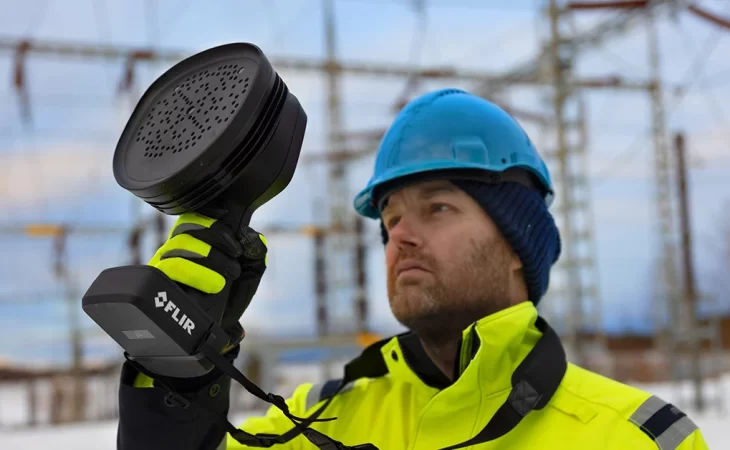Compressed air is one of the biggest commodities of almost every industry, from manufacturing, pharmaceutical, food production, and wood processing plants to construction, automotive, and aviation. Whether powering tools, machinery, or processes that keep your business running smoothly, just the thought of leaks can raise your blood pressure. Compressed air leaks are more than just a nuisance; they are quiet robbers of energy bills due to their inefficiency but with a price surge to meet those demands.
Fortunately, provided with ample stated leak detection equipment, one can always unearth such leaks and put them to an end before they blow out of proportion. With all types of detection equipment available on the market, choosing the best for your company can be overwhelming. This guide is meant to take you through the choices, explain to you in detail the significant features when getting the right compressed air leak detection equipment, and thus make a well-rounded decision to protect your business.
Contents
Understanding Compressed Air Leaks
Before the selection of any leak detection equipment can be considered, it is essential to understand why leak detection is a high-priority matter. Compressed air leaks waste 20 to 30% of a system’s output. This results in energy use being wasted, compressing air that is never used; it potentially may increase operational costs. In addition, not only do leaks waste energy, but they also put additional stress on the compressor, thus shortening life and more frequent maintenance.
If uncontrolled, such losses may have serious financial effects and affect productivity in the long run. Invest in the right leak-detection equipment- the suitable leak-detecting investment will allow you to minimize those losses and maintain a much more efficient, cost-effective operation.
Types of Compressed Air Leak Detection Equipment
Following are some of the most common types of compressed air leak detection equipment:
1. Ultrasonic Leak Detectors
They are highly effective and widely used to locate leaks in compressed air. Working on the principle of capturing ultrasonic sound waves produced by air escaping through a leak, these gadgets convert these ultrasonic sounds into an audible range. This allows the operators to locate the leak precisely.
Advantages
Capable of detecting even the most minor leakage with a high degree of accuracy.
It can be used in noisy environments because the ultrasonic frequencies are above the range of human hearing.
Best for application in high background noise areas or large systems where a reliable, flexible leak detection solution is needed.
2. Acoustic Imaging Devices
Acoustic imaging devices take leak detection a step further by identifying the sound of a leak and visualizing it. These devices achieve their intended purpose by bringing an array of microphones and creating an image or map of the sound. This picture helps operators understand precisely where the leak is located.
Advantages
- It provides a pictorial view of the leaks, allowing for easy detection when multiple leaks are occurring simultaneously.
- Great for detecting hard-hosing, large, bulky systems where leaks can be difficult to hear or identify in other ways.
It is best for applications involving extensive facilities or complex systems where multiple leaks may be present or visual confirmation is an asset.
3. Portable Flow Meters
Portable flow meters, which measure flow in systems, can also identify those leaks by searching out pressure drops at higher-than-expected flows. Those meters are particularly useful in determining leakage quantity for a reasonable feel for the approximate energy losses.
Advantages
- Provides the size and other impacts of leaks, which is helpful for better decision-making.
- Can be used for continuous monitoring, not just for spot checks.
It is best for businesses that want to know not only about the detection of leaks but also the impact on the efficiency and cost of a system.
Key Features to Consider When Choosing Leak Detection Equipment
Here are some of the key features to consider when getting a compressed air leak detection equipment:
Sensitivity and Accuracy
When dealing with minor leaks, the sensitivity of detection equipment becomes critical. While ultrasonic leak detectors are generally the most sensitive, acoustic imaging devices also provide variable levels of great accuracy. Ensure the equipment you choose can detect leaks at the scale relevant to your operations.
Ease of Use
Leak detectors should be easy to use, especially if you’re looking into using them frequently. Secondly, it would be a question of whether the machine would be portable, how much ease it would come with when using it, and if your staff would need to undergo some serious training. Advanced machines may provide you with more features; however, they require a little more expertise than the simple ones.
Environmental Suitability
Your work surroundings are a significant determinant of your work surroundings. If it is a noisy facility, you’ll need an ultrasonic detector to filter out background noises. One may see the suitability of an acoustic imaging device for big or complicated systems. You also have to look at how much it will withstand a lot of wear and tear if the environment is harsh or industrial.
Cost and Return on Investment (ROI)
While budgeting is essential, one must also consider the value of the budget. Sure enough, more expensive equipment may offer greater accuracy or additional features that can save you more money in the long run by detecting leaks that often go unnoticed. Weigh the initial cost against the possible savings in energy and maintenance throughout the year as you weigh the best value for your business.
Data Capabilities
Data logging and event analysis are standard in advanced leak detection equipment today. This capability proposes tracking leaks over time, monitoring trends, and making data-driven decisions on maintenance and repairs. If you want to continually monitor ongoing processes with data analysis crucial for your operations, look out for equipment offering these features.
Invest in the future of your business. Leaks in compressed air can be a major but ignored problem that saps your resources and reduces your operational efficiency. Therefore, investing in the right leak detection equipment thus gives you that power over the issue that has been hidden and saves your business from its definite costs.


![13 Best Sites to Stream UFC Live Online for Free [2024] 13 Best Sites to Stream UFC Live Online for Free [2024]](https://appearworld.com/wp-content/uploads/2024/11/13-Best-Sites-to-Stream-UFC-Live-Online-for-Free-200x125.jpg)


